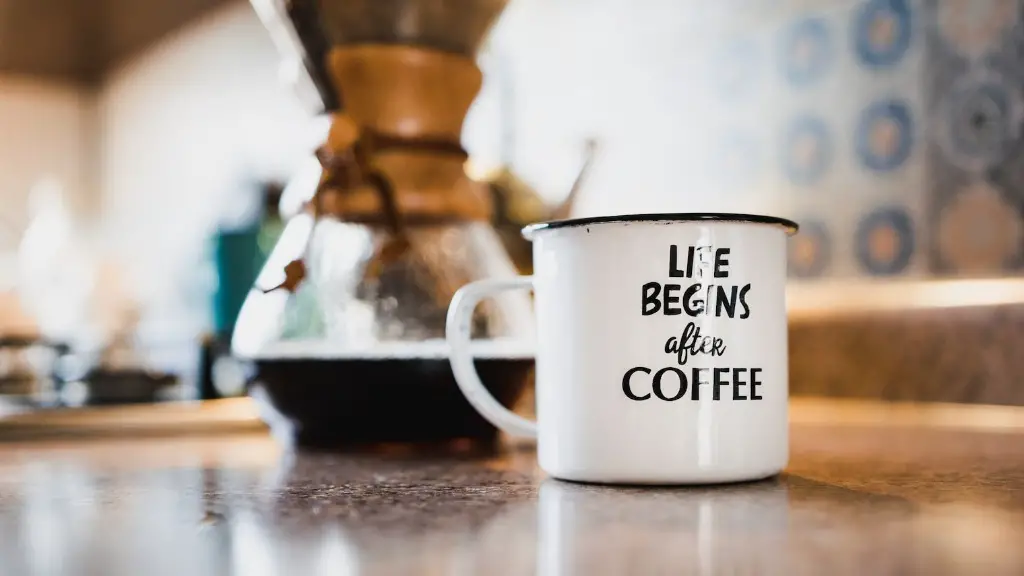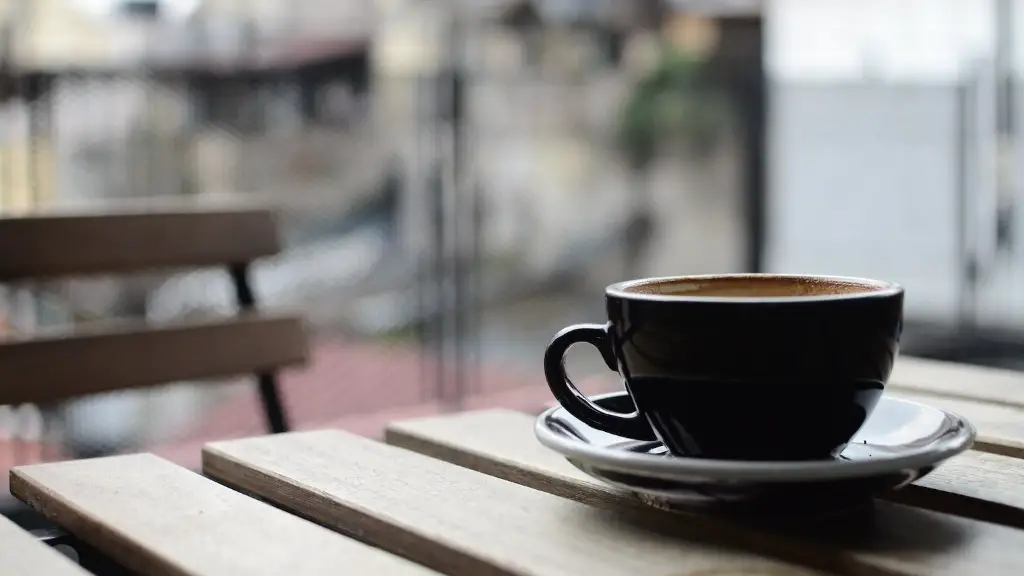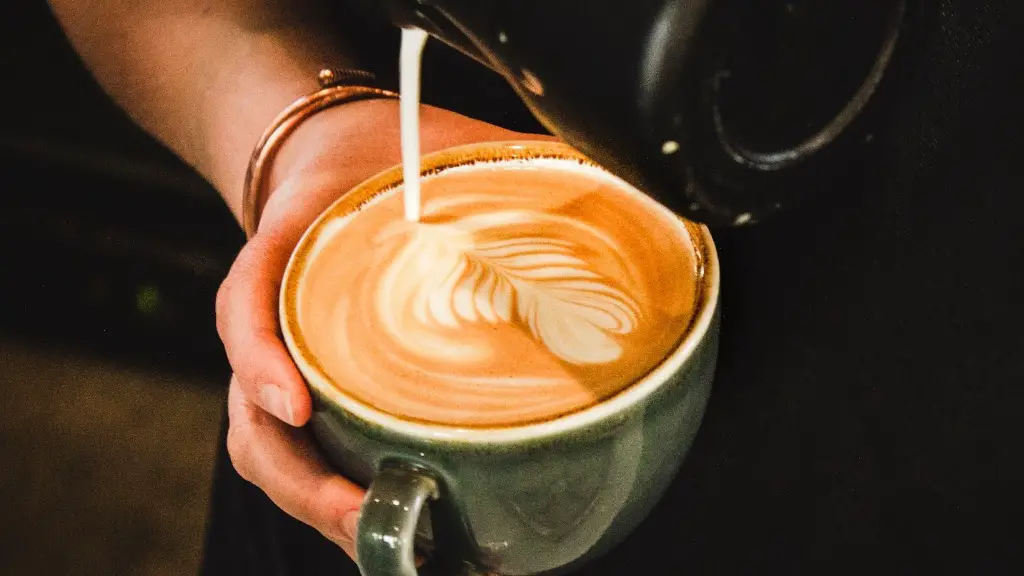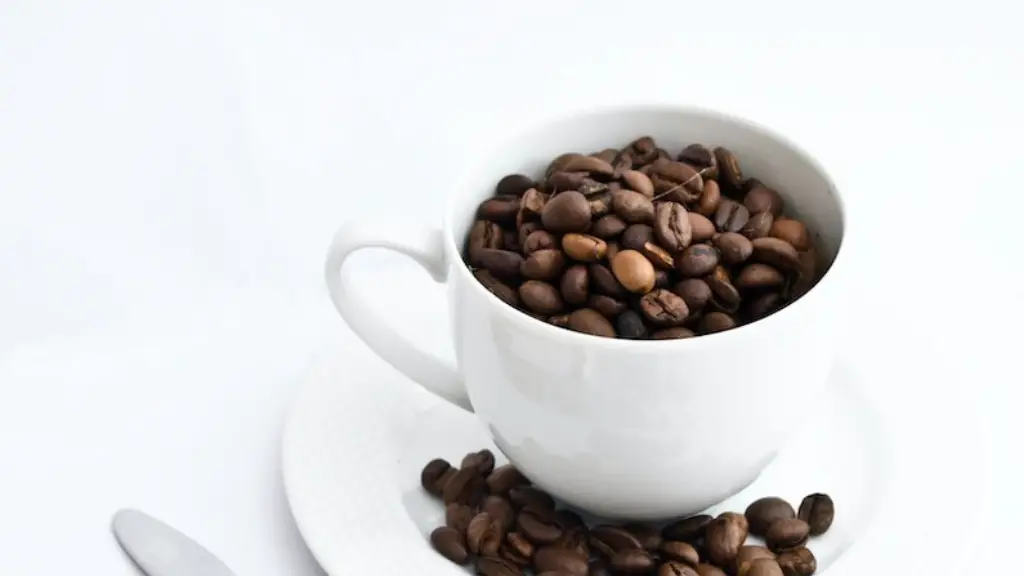Does Drinking Coffee Cause Dehydration?
Coffee is an amazingly popular beverage that most people consume on a daily basis. It is believed to have numerous benefits and can range from invigorating and energizing, to comforting and relaxing. However, many people have wondered, does drinking coffee cause dehydration?
The short answer is, yes. Coffee does contain some water, however it is a diuretic and can increase the production of urine in the body. This means that after drinking coffee, your body will expel more liquid than it is absorbing and thus, will cause your body to become dehydrated.
However, it isn’t all doom and gloom. As long as you drink coffee in moderation, the amount of dehydration which occurs afterwards is minimal. Experts recommend that those who consume coffee should not drink more than 4 cups per day and should try to balance it out with other fluids to ensure they are getting the adequate level of hydration they need.
It is also important to note that different types of coffees contain different levels of caffeine. For example, caffeine levels in a single espresso are much higher than that found in a standard cup of filter coffee. Consequently, it is recommended to go for lower-caffeine coffees if you are drinking it for the health benefits alone.
Another factor to consider is the temperature of the coffee. Drinking hot beverages can certainly make the sensation of dehydration even worse due to the increase in perspiration and the associated liquid loss. It can be suggested that opting for a cold or iced latte may be a better option if you’re wanting to decrease your risk of becoming dehydrated.
Ultimately, a great way to make sure you stay hydrated while enjoying your cup of joe is to combine adequate water intake with your coffee consumption. This will balance out any liquid loss and reduce the risk of dehydration. Additionally, if you want to maximize the numerous health benefits associated with coffee, you should look for other alternatives that lack caffeine, such as decaf.
Replenishing Fluids & Electrolytes
Coffee consumption can cause loss of body fluids, electrolytes, and other nutrients. While increased urine output will cause mild dehydration, it’s important to note that it is not as severe as dehydration from sweating, vomiting, or diarrhea.
In any case, it is important for those drinking coffee to replenish their fluids. You can do this by drinking various fluids such as water, juices, and electrolyte-infused beverages. Additionally, it’s important to make sure you’re eating enough foods that contain electrolytes. Some examples include bananas, sweet potatoes, spinach, and tuna.
It’s also crucial to note that each person’s body has different needs. For example, those that consume caffeine will require more fluid than those that do not. This is because the body needs to excrete the caffeine that it absorbs. Thus, it’s important to pay attention to your body’s needs and hydrate accordingly.
Finally, caffeine tolerance also plays a factor. Those who consume more caffeine than their daily recommended limit (400mg) tend to become dehydrated more easily, and thus, would need more fluids and electrolytes to counterbalance this.
Different Choices of Coffee
It’s also important to note that there are different types of coffee that you can choose from, as mentioned earlier. An array of coffee beans and preparations with different levels of caffeine and hydration are available. For those who are conscious about their caffeine and hydration levels, going for options such as decaf and cold brew would be much better.
Additionally, various flavored coffee drinks are available. Many prefer to sweeten their cup of joe with sugary syrups or enhancing liqueurs. While indulging in such drinks can be quite enjoyable, it is important to note that these are packed with sugar, which will not help with hydration.
For this reason, it might be a good idea to look at sugar-free, low sugar, or plant-based sweeteners, such as agave nectar and coconut sugar. These will still enhance the flavor of the drink, but without the unnecessary sugar-intake.
Hydrating Alternatives for Coffee Lovers
Although coffee can lead to dehydration, it doesn’t mean that we need to sacrifice our love of coffee. Caffeine-free and low caffeine options, such as herbal tea, are available. Not only are there various options of teas to choose from, but they are also packed with numerous health benefits alongside hydration. Additionally, they can be a great alternative if you need a break from coffee.
Making your own tea at home is a great way to reduce the amount of caffeine and sugar you’re consuming. For example, using natural sweeteners, such as honey or maple syrup, in place of white or brown sugar is a great way to make your drink enjoyable, and healthier, for the body. Additionally, adding various fruits, such as strawberries, oranges, or lemons, can not only make the drink more exciting, but also provide you with more nutrients and hydration.
If herbal tea is not to your preference, opting for fruit and vegetable juices is another great alternative for hydrating the body. As mentioned earlier, drinking fluids that are packed with electrolytes can be a great way to nourish the body. Various natural, sodium-filled juices are available from supermarkets, or alternatively, you can make them yourself at home.
Opting for a Balanced Diet
Lastly, it is important to note that balance is key when it comes to our body’s health. Ingesting caffeinated drinks is absolutely fine in moderation; however, too much of any one type of drink, such as coffee, can be detrimental to our health. Therefore, it’s important to make sure you’re eating a balanced diet that includes a variety of different beverages, such as water, herbal tea, and juices.
It is also important to note that the consumption of caffeine can affect people differently. For some, pushing the limit with caffeine consumption may cause dehydration; for others, drinking one cup of caffeinated coffee might be alright. It’s important to know your body and listen to what it’s telling you.
In conclusion, all in all, it is reasonable to assume that drinking coffee can cause dehydration. However, with that said, it’s also important to take account of various factors such as caffeine intake and other dietary habits, before making a judgement. After all, everyone’s body and needs are different. As long as you’re listening to your body, opting for balanced diet, and drinking adequate fluids, it is reasonable to assume that the effects of dehydration can be controlled.





